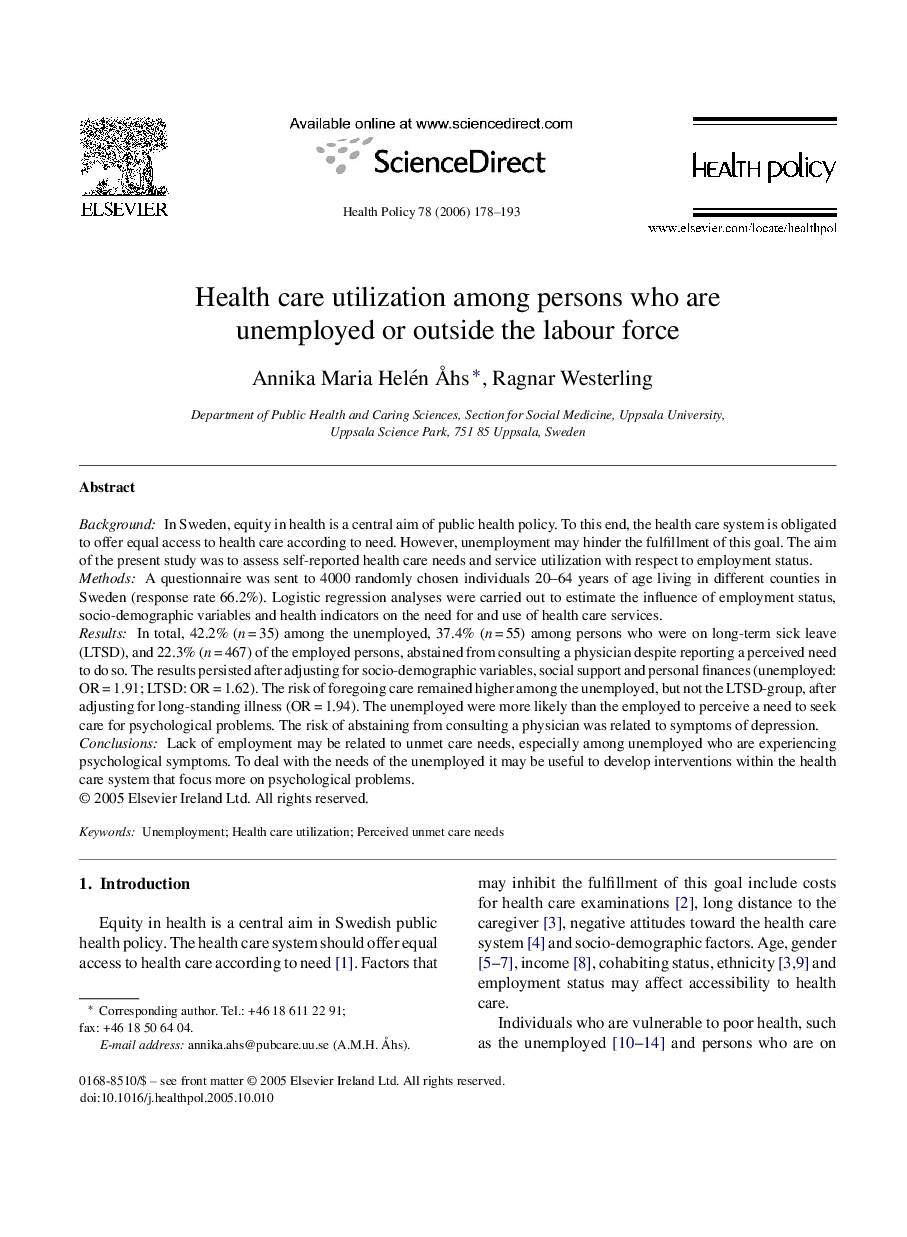| Article ID | Journal | Published Year | Pages | File Type |
|---|---|---|---|---|
| 4199023 | Health Policy | 2006 | 16 Pages |
BackgroundIn Sweden, equity in health is a central aim of public health policy. To this end, the health care system is obligated to offer equal access to health care according to need. However, unemployment may hinder the fulfillment of this goal. The aim of the present study was to assess self-reported health care needs and service utilization with respect to employment status.MethodsA questionnaire was sent to 4000 randomly chosen individuals 20–64 years of age living in different counties in Sweden (response rate 66.2%). Logistic regression analyses were carried out to estimate the influence of employment status, socio-demographic variables and health indicators on the need for and use of health care services.ResultsIn total, 42.2% (n = 35) among the unemployed, 37.4% (n = 55) among persons who were on long-term sick leave (LTSD), and 22.3% (n = 467) of the employed persons, abstained from consulting a physician despite reporting a perceived need to do so. The results persisted after adjusting for socio-demographic variables, social support and personal finances (unemployed: OR = 1.91; LTSD: OR = 1.62). The risk of foregoing care remained higher among the unemployed, but not the LTSD-group, after adjusting for long-standing illness (OR = 1.94). The unemployed were more likely than the employed to perceive a need to seek care for psychological problems. The risk of abstaining from consulting a physician was related to symptoms of depression.ConclusionsLack of employment may be related to unmet care needs, especially among unemployed who are experiencing psychological symptoms. To deal with the needs of the unemployed it may be useful to develop interventions within the health care system that focus more on psychological problems.
